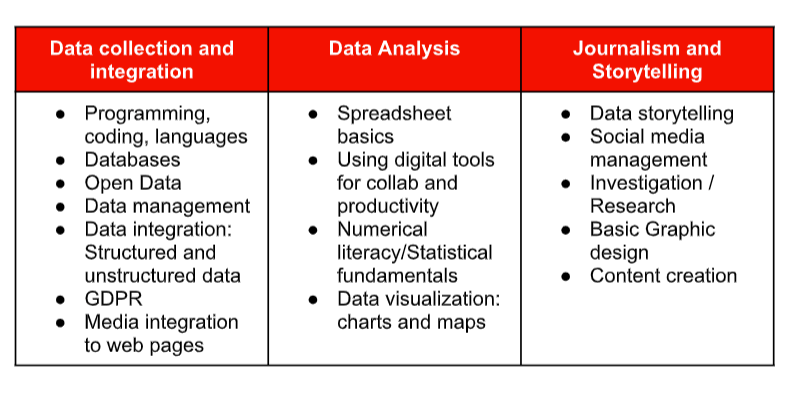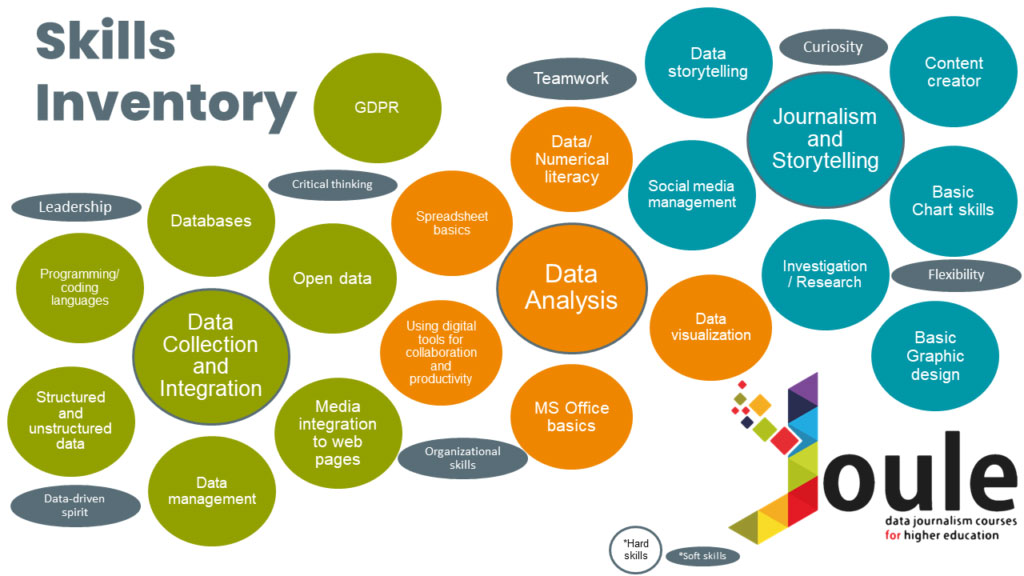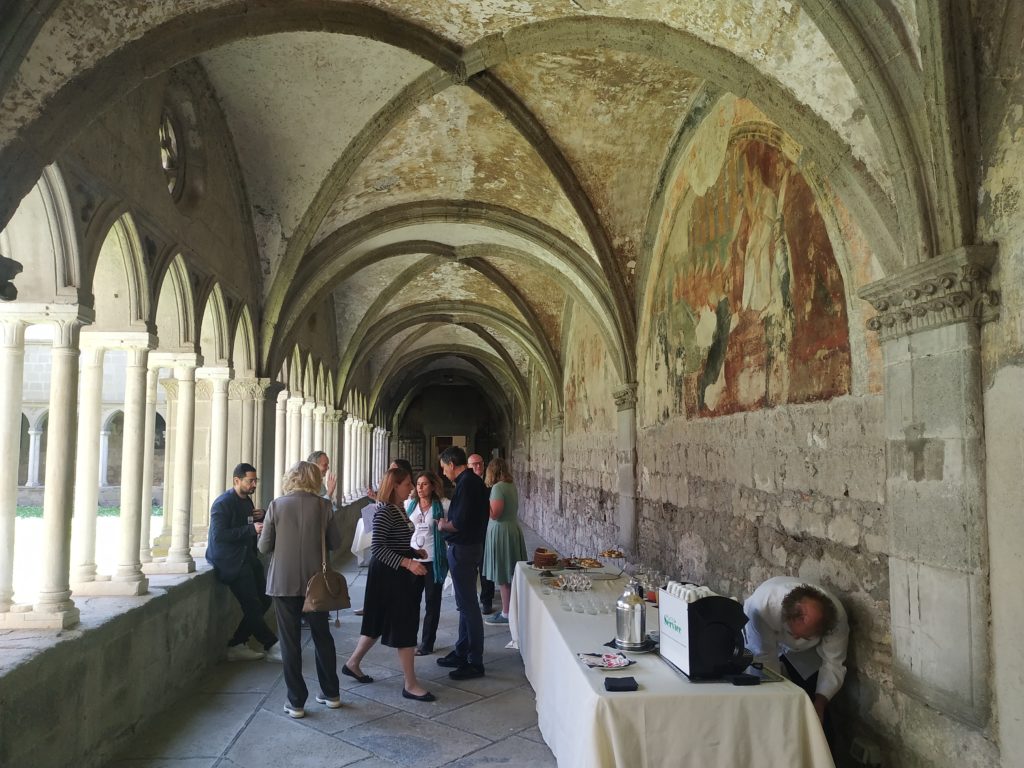The Peace Journalism Lab of the Aristotle University of Thessaloniki participates in the Pan-European program “JOULE: the Data Journalism courses for Higher Education” with the aim of creating joint data journalism courses with universities abroad to develop students’ skills. The partners are University of Tuscia, Universidad Nova de Lisboa, Dataninja, Evodevo, Aristoteleio Panepistimio Thessalonikis, Universidad de Alcalá and UC Limburg.
Data Journalism Skills inventory
How to do data journalism? How journalists are dealing with data nowadays? What are the key competencies and skills to perform data analyses and create data visualizations? To answer these questions, Joule consortium carried out a preliminary research aimed atcollecting experiences, opinions and facts on what is the state of the art in European newsrooms and in the Educational context.
Coordinated by the Universidade Nova de Lisboa, consortium members managed different kind of researches:
- Preliminary desk research for mapping the state of the art in terms of educational offers and opportunities in Europe and beyond to understand new requirements and skills derived from the analysis of the two different areas of intervention: data analysis and data journalism.
- In-depth interviews and focus groups to further deepen each national context. These interviews have been managed by inquiring expertise and daily workflows of data analysts and journalists.
Universidade Nova de Lisboa has collected the several researches carried out by project partners and compiled them in a final report, including key findings and drafting what we call Skills inventory of data journalist profile.
This inventory has been informing the process of educational content creation, in order to get the project timely and closely to the general needs within the European data journalism context as moving ahead to explore further competencies to be included in this profile.
Courses development along three areas of teaching
The consortium is now committed to creating syllabus, content and material for the Joule project. The course’s development is managed by the project coordinator, University of Tuscia, who is promoting collaboration among partners for the creating process itself. Thanks to the excellent work carried out by Universidade Nova de Lisboa in the Project Result 1, now the consortium has an effective inventory of skills to be covered by the educational offering. The consortium defined the areas of teaching as follow:
- Data collection and integration
- Data Analysis
- Journalism and Storytelling
Within these three areas, the consortium is working to create a series of modules to be piloted, as detailed in the table below.
From November ahead, all consortium members are committed to work both alone and in tandem in order to draft courses’ content by early 2023. Once created, the modules will be piloted with students in different contexts.

Building the educational platform
Alongside the creation of the educational content, the consortium is also working on the development of the educational platform. Carried out by the Italian partner Evodevo, this task is crucial for establishing a single gateway to publish and make accessible all educational material. To cope with this task, Evodevo drafted a document of requirements to be circulated among partners in order to collect needs, expectancies and obstacles on the technological part of the Joule project. At the same time, Evodevo proposed to use open source libraries for creating the platform and installed a Moodle instance with the agreement among all partners. For the time being – December 2022 – the platform has been launched and configured. In the coming weeks, all partners will use it for publishing all educational content, in order to be ready for the piloting phase.
Please find the platform at this web address: https://elearning.evodevo.it/
Joule – Viterbo TPM
The consortium finally met in person in the stunning location of the Tuscia University in Viterbo. This occasion, despite we are at the very initial stage, was key both to establish a collaborative approach and to outline the next steps of the project. After the project overview done by our coordinator Professor Paola Vocca, we focused on an in-depth presentation of the management tool that we are going to use along all the project life cycle, thus ensuring that all the process will proceed smoothly.
The implementation journey of the Joule project consists of a five-steps roadmap; during this transnational meeting we had the chance of presenting the results of the first Projects Results (PR1): The Journalism and data science skills inventory, made possible by the desk research and analysing of the state of the art of Data-Driven training programs in the Higher Education in the European context and beyond.
Eventually, the consortium discussed about the communication and dissemination plan and introduced the PR2, namely the design and development of new and innovative data journalism courses based on the insights emerged from PR1.
Joule has been on the stage at two important events in Italy in late September 2022. The first one was the 2022 European Researchers’ Night, where researchers from the University of Tuscia presented the project focused on creating and piloting new courses on data journalism. Even if the project still stands at its beginning phases, researchers gathered warm feedback from colleagues and stakeholders, aiming at staying up-to-date with further implementations.
At the same time, another Italian partner, namely Dataninja, presented the Joule project within Open Data Sicilia gathering. It consists of an event where Open Data activists meet together, coming from different places in Italy and abroad. The project has been showcased by Dataninja, highlighting data journalism as an emerging field of competences for journalists, as Italian and European universities are still lacking in terms of specific educational offering in this field.
For these reasons, Joule consortium is evaluating new opportunities to spread the word and enlarge the spectrum of its outreach. Stay tuned!





